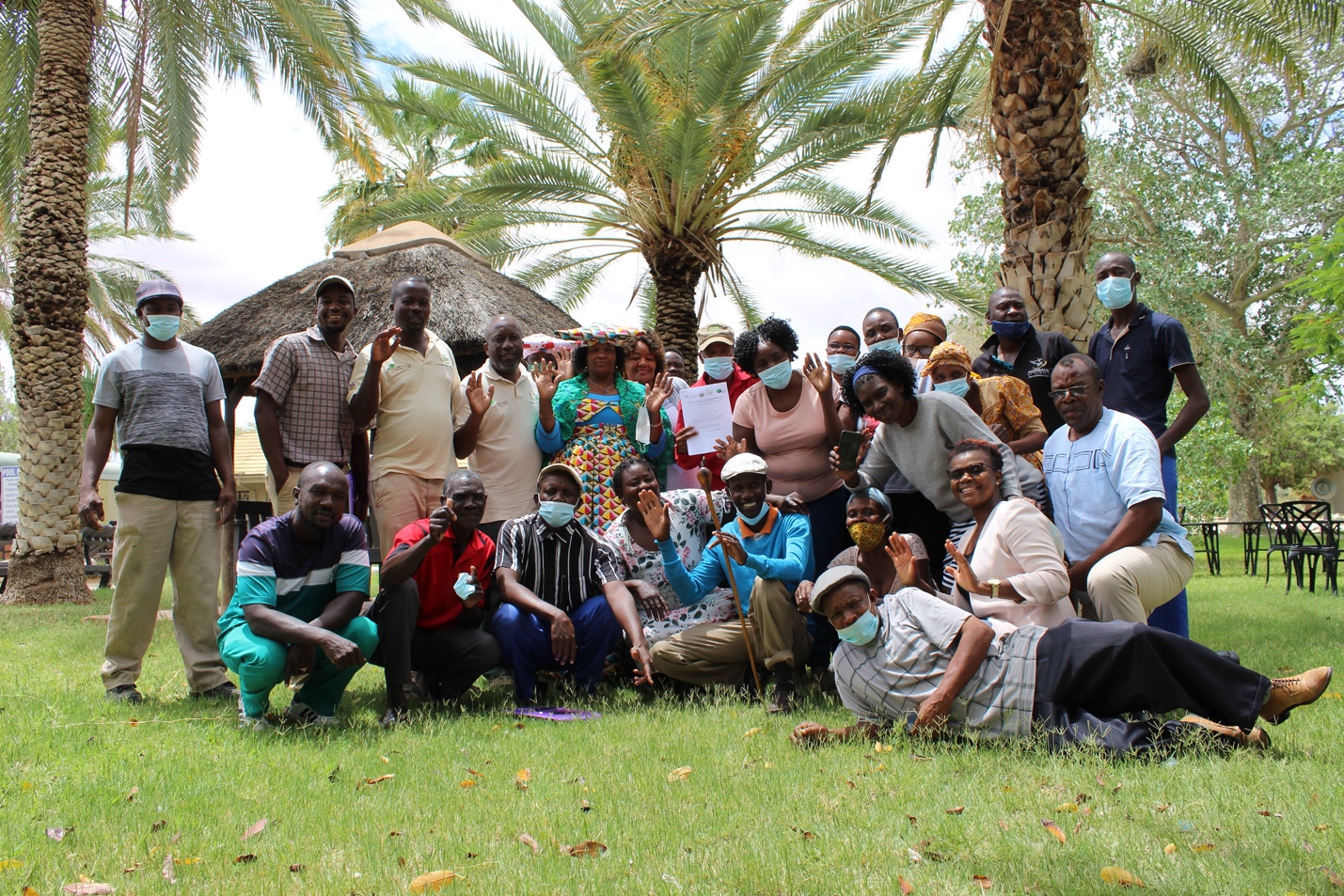
KHORIXAS: The SAP001“Improving Rangeland and Ecosystem Management (IREMA) Practices of Smallholder Farmers under Conditions of Climate Change in the areas of Sesfontein, Fransfontein, and Warmquelle in Kunene Region. This is a five-year project (2019-2024), funded by the Green Climate Fund through the Environmental Investment Fund of Namibia (EIF) and it is being implemented in conjunction with the Ministry of Agriculture, Water and Land Reform (MAWLR). ). The project aims to reduce vulnerability and build the resilience of smallholder farmers to cope with the negative effects of climate change in Kunene region.
In November 2020, the project through the Ministry of Agriculture, Water and Land Reform facilitated the handover of 425 goats to twenty (20) vulnerable farmers, of which 12 are female. Each farmer received 20 does (female goats) and one buck (male goat). The value of these goats is estimated to N$900 000.00, including a starter pack of remedies that each farmer received. The handover also included the drought relief fodder (grass, Lucerne and licks) valued at N$1.2 million. This fodder was distributed to farmers (more than 2500 farmers) as part of the IREMA project’s interim intervention in supporting farmers to cope with the devastating and prolonged drought experienced in the region.
To ensure that these goats are used for the intended purpose (Revolving Scheme), a revolving agreement was signed between the MAWRL, IREMA and the beneficiaries. The agreement intends ensures the sustainability of the intervention. As per this agreement, the beneficiaries are expected to revolve the first 10 does after 18 months and then 10 does after 36months.
Edmund Haradoeb, one of the beneficiaries, said “he was very worried “as the country is already faced with many challenges. Haradoeb is one the many farmers who were on the verge of giving up. “I lost my goats, cows and donkeys due to the worst drought we experienced over the past years. We were really in need of this kind of assistance, thank you IREMA” he explained. From this breeding flock, I will be able to buy cows and donkeys and return to the way were farming, that is our biggest desire”.
In order to ensure productivity of the small stock received, , the project team together with technical staff members from the Ministry of Agriculture Water and Land Reform in collaboration with Agribank’s Advisory Services offered a three days training that provided both theoretical and practical skills to the beneficiaries last week .
“I consider myself lucky to be part of this training, as I have learned a lot. I feel inspired and motivated to continue farming again” said Constansia Somses, one beneficiary, who reported that she had lost one of her goats to a predator.
The EIF’s Chief Operations Karl Aribeb reiterated the commitment of the Fund to support farmers in Kunene to cope with drought effects. However, farmers are urged to be extra careful of stock theft and predation. In her closing remarks, Mirjam Kaholongo, the IREMA National Project Manager, urged all beneficiaries to take good care of the goats and abide to the conditions of the by-laws, protocol and the signed revolving agreement. “It is my desire that these goats will have the intended impact on your livelihood and that they will multiply so that their offspring can be revolved to benefit other community members in your region” she said.
The IREMA Project will still distribute more than 2000 goats to vulnerable farmers in Kunene region. Among other things, the project promotes climate resilient development through supporting adaptation interventions including sound rangeland management, rehabilitation of boreholes, rehabilitation of the green schemes, and provision of fuel-efficient stoves, supply and installation of drip irrigation systems, drought resilient seeds at household level and development of an early warning system tailored for Kunene region.

